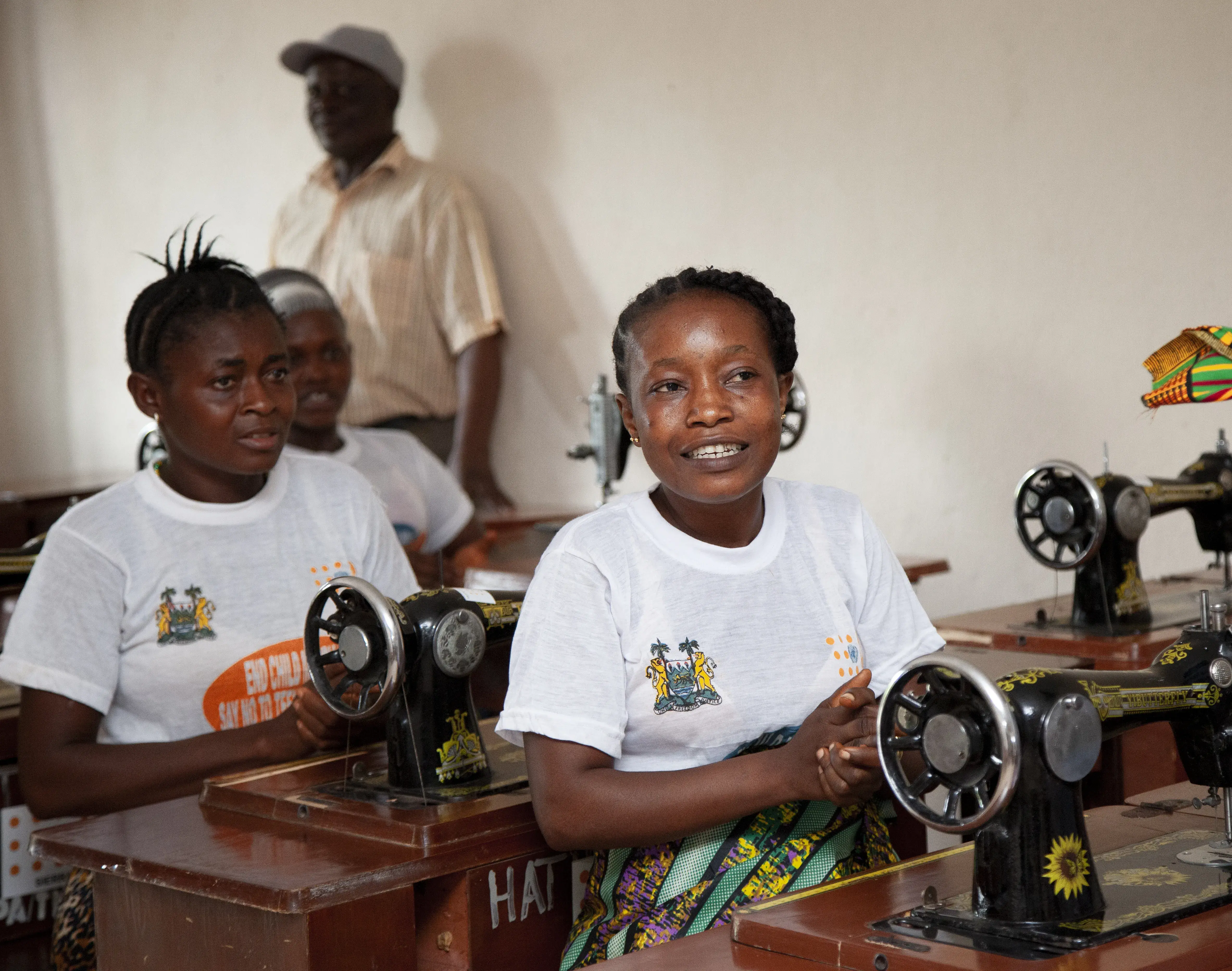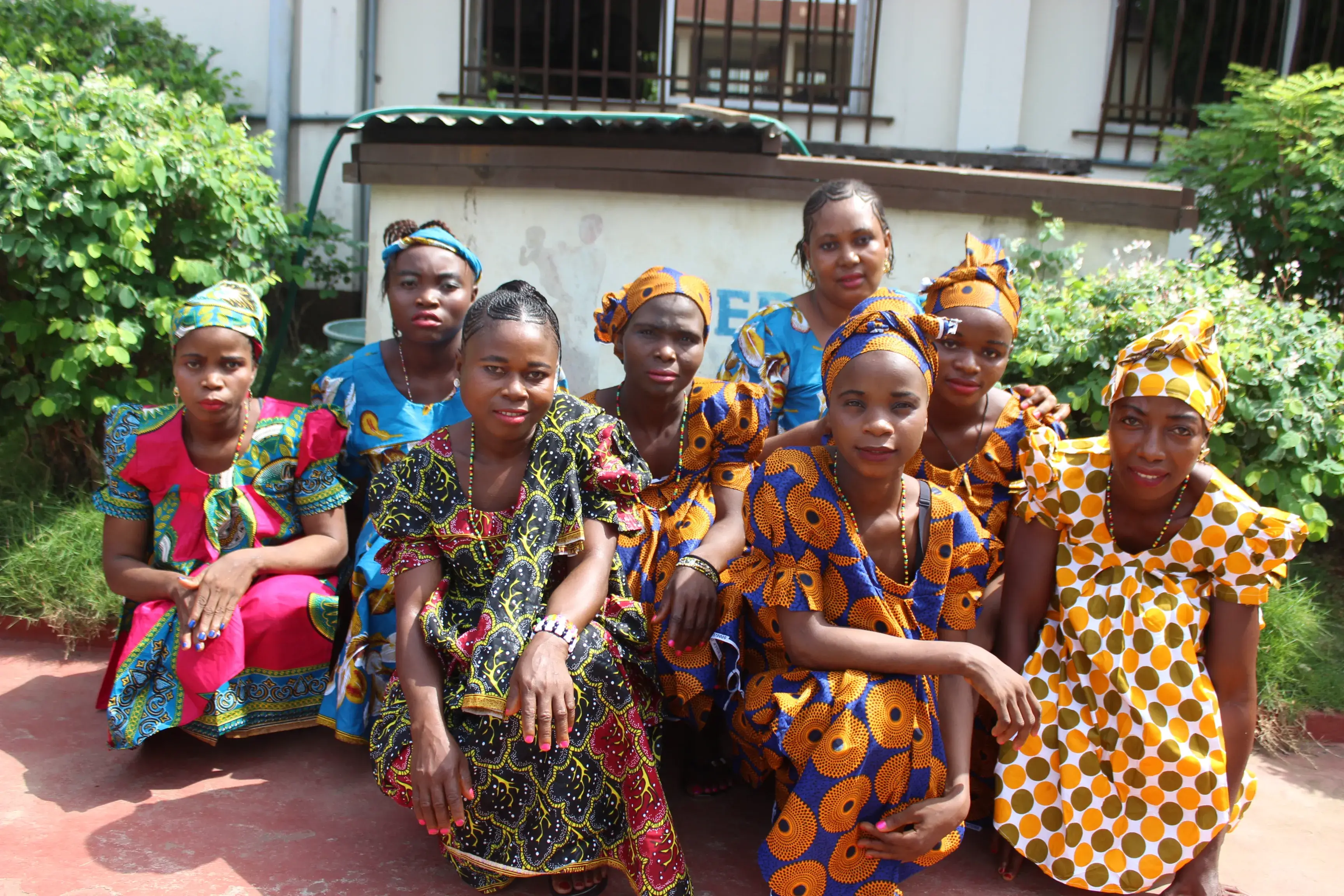UNFPA Sierra Leone marks International Day to End Obstetric Fistula
Freetown, Sierra Leone, 23 May 2020: The United Nations Population Fund (UNFPA) in Sierra Leone today 23 May 2020 joins the rest of the world in celebrating the International Day to End Obstetric Fistula, with the theme "End gender inequality! End health inequities! End Fistula now"!
The International Day to End Obstetric Fistula was designated by the United Nations General Assembly as a way of promoting universal actions to prevent and end obstetric fistula. The United Nations Population Fund (UNFPA) is using this year’s occasion to reflect on progress made, raise awareness, and renew the Nairobi commitments to End Fistula.
Obstetric fistula is a medical condition resulting from injuries sustained by pregnant women during childbirth in which a hole develops between the birth canal and the urinary system or rectum resulting in constant leakage of urine or faeces. This condition is devastating to women as they often get stigmatised, abandoned by their loved ones, and socially isolated leading to depression.
UNFPA leads the global campaign to End Obstetric Fistula which represents nearly 100 partner agencies in more than 55 countries in Africa, Asia, the Arab Region and Latin America, working at the national and community levels. This campaign is aimed at addressing this neglected public health and human rights issue by supporting the identification of affected women, providing surgical treatment, psychosocial support, and income generating skills to enable social re-integration. Whilst Fistula has been virtually eliminated in developed nations, hundreds of thousands of women and girls live with the condition in developing countries. The persistence of fistula is a tragic sign of global social injustice and inequity against women and girls.
Despite being a devastating condition Obstetric fistula is preventable through provision of quality care at birth and, in most cases, can be repaired surgically.
In her statement marking the day, UNFPA Executive Director Dr. Natalia Kanem said, “while fistula has been virtually eliminated in developed nations, hundreds of thousands of women and girls in the developing world still live with this debilitating condition. As leader of the global Campaign to End Fistula, UNFPA provides funding and support for fistula prevention, treatment and social reintegration programmes. Since 2003, we have enabled more than 113,000 women globally to undergo obstetric fistula repair surgery”.
It is estimated that about 2,400 women live with obstetric fistula in Sierra Leone, where the UNFPA has partnered with the Ministry of Health and Sanitation and other local agencies like Aberdeen Women’s Center and Haikal Foundation to provide care and support to survivors of obstetric fistula over the past years. In the past five years, the United Nations Population Fund in Sierra Leone has supported fistula repair surgery for over 800 fistula survivors. This has helped in transforming their lives and restoring their dignity. In addition, UNFPA has been supporting the Government of Sierra Leone to prevent occurrence of obstetric fistula by improving the quality of care provided to women during child birth.
Obstetric Fistula is a direct result of failure by a health system to provide quality health care during child birth. As health systems across the globe struggle to cope with the COVID-19 response, sexual and reproductive health services risk being neglected. Lack of access to sexual and reproductive health services especially during pregnancy and childbirth, is devastating for women and girls who are already dealing with economic, social, cultural and logistical barriers to care.
The pandemic is deepening pre-existing inequalities, exposing vulnerabilities in social and economic systems which are in turn amplifying the impacts of the pandemic. Increased fear, stigma and misinformation on COVID-19 within communities are also leading to women avoiding or delaying to seek care for fear of acquiring COVID-19. Such avoidance or delay by pregnant women to seek care may lead to complications of child birth such as obstructed labor which can result in development of obstetric fistula or death.
In commemoration of this year’s International Day to End Obstetric Fistula, UNFPA Sierra Leone Country Representative, Dr. Kim Eva Dickson joins the government of the Republic of Sierra Leone in urging pregnant women to ensure that they give birth in health facilities with the help of trained health care providers, even during this period of the COVID-19 Pandemic.
Dr Dickson also reaffirms the commitment of the United Nation’s Population Fund to the partnership with the Government of Sierra Leone and other partners in ending obstetric fistula. “We are committed to the campaign. We should all work towards ending gender inequality, ending health inequities and above all, we should strive to end Fistula now", she said.
She further encourages the Government of Serra Leone and all health care partners to ensure the continuity of maternity and other sexual and reproductive health services during the COVID-19 pandemic to prevent Obstetric Fistula and other complications related to childbirth including death.
The United Nations Population Fund (UNFPA) works to deliver a world where every pregnancy is wanted, every childbirth is safe and every young person's potential is fulfilled.
__________________________________________
For more information, contact:
John Baimba Sesay
Web and Media Analyst
Email: jsesay@unfpa.org
Tel: +232 3095319




